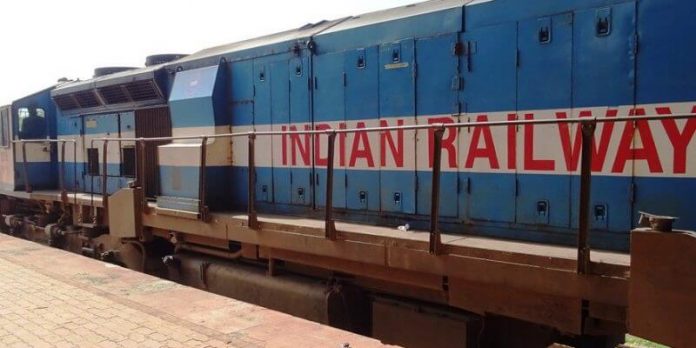This article is written by Sanjana Jain, a student of Guru Gobind Singh Indraprastha University, Delhi. This article talks about the project awarded to Chinese companies in 2016 and why Indian railways will terminate it in 2020.
Table of Contents
Introduction
After the fresh animosity between India and China, a set of actions have been taken from the Indian side which shows that from now onwards Chinese companies will start losing their business in India. The Indian Railways have terminated the contract with Chinese firms that were earlier awarded to them and are also thinking of handing these out to Indian companies.
This comes in the aftermath of the violent face-off in the Galwan Valley area of Ladakh on June 15, where at least 20 Indian Army personnel, including a colonel rank officer, lost their life. The Dedicated Freight Corridor Corporation of India Limited (DFCCIL) terminated the contract that was earlier awarded in 2016 to Beijing National Railway Research & Design Institute of Signal & Communication Group Co. Ltd for the purpose of signaling and telecommunication. This contract was funded by a loan from the World Bank.
It is learned that the DFCCIL was not happy with the progress of the project, and even after repeated reminders and meetings the Chinese company was not improving its work. In the termination notice, DFCCIL has laid down other issues with the Chinese firm, including the unwillingness of the Chinese company to furnish technical documents and the absence of company’s engineers or authorized personnel at the site.
Project awarded to a Chinese firm in 2016
In 2016 the project awarded by Indian Railways to the Chinese firm Beijing National Railway Research and Design Institute of Signal and Communication was for the “signalling and telecommunication work” on the Eastern Dedicated Freight Corridor. The net worth value of the contract was Rs 471 crore.
DFCCIL is Public Sector Undertaking (PSU) which is run by the Indian Railways. The contract was for signalling and telecommunication work in the Kanpur-Deen Dayal Upadhyay section.
According to the officials of DFCCIL, even after 4 years, there was only 20% progress in the project. The reason that led the Indian Railways to terminate the contract was the reluctance by the Chinese company to furnish technical documents like the logic design of electronic interlocking and the non-availability of the authorized personnel and the engineers at the main site was the serious constraint. Also, as they have not tie-up with the local agencies the physical work was also not taking place.
According to the MD of DFCCIL, a certain period, which is normally 14 days, has to be given for verification of the work that Chinese company has done. A fresh tender for the remaining work at the stretch will be called by the end of July or in August, 2020. The work is planned in such a way that the rainy season will be utilized which is considered dull for the construction, such that when the next working session starts, the system will be in place.
Termination of contract by Indian railways
The Indian Railways by citing poor progress as the reason has terminated the contract with the Chinese company, DFCCIL stated that in the last four years the company has completed only 20% of work. In June 2016, the signalling and telecommunication work on the Eastern Dedicated Freight Corridor was awarded to the Chinese company Beijing National Railway Research & Design Institute of Signal & Communication Group Co. Ltd. The project is funded by a World bank-funded loan.
It was stated by DFCCIL even after repeated reminders and meetings with them there has been no improvement in the progress of the project, also the company has failed to furnish technical documents required as per the contract agreement. The physical work was not able to progress as the company had no tie-ups with the local agencies and the non-availability of engineers and authorized personnel at the site was a serious constraint.
DFCCIL is a state-run agency that is made for the development, planning, mobilization of funds and construction, and maintenance and operation of the dedicated freight corridors.
Meanwhile, the state-owned telco Bharat Sanchar Nigam Limited (BSNL) was also directed by the Department of Telecom (DoT) to avoid using Chinese equipment in the up-gradation of 4G facilities. This step of Indian Railways also promotes the “Make in India” project of Prime Minister Narendra Modi. This all happened when at the Line of Actual Control (LAC) in the Ladakh region there was tension between India and China.
Issues with the Chinese firm
Several issues were stated by the Indian Railways with the Chinese company in the document terminating the contract. Some of them are as follows:
- Failure of the company to furnish technical documents like the logic design of electronic interlocking, as per the Contract Agreement.
- The Non-availability of their engineers/ authorized personnel at the project site was a serious constraint.
- As they have no tie-up with the local agencies, physical work was not able to progress.
- Material procurement, which is an independent activity, has not been done earnestly.
- Even despite repeated meetings with them at every possible level, there was no improvement in progress.
Railways ready to fund the project if World Bank withdraws
The contract between Indian Railways and Chinese Company was funded by the loan from the World Bank, but if World Bank does not agree with India’s move to terminate the contract with the Chinese firm, the Indian Railways said that then the project will be funded by them itself.
What happened at Indo-China border
In the clashes between Indian and Chinese troops along the disputed Himalayan border running along the Ladakh area, 20 Indian soldiers died. Since 1975 it’s the first deadly clash and the most serious since 1967.
The conflict started on 15 June when on a narrow ridge Indian patrol came across Chinese forces, one of the Indian commanding officers was pushed and fell into the river gorge during the confrontation. From both sides, hundreds of troops were called in and fought with rocks and clubs.
It was told by the Indian Army that from both sides there were casualties, 3 of their soldiers were killed during the clashes, with 17 others later succumbing to injuries. No deaths have been confirmed from China’s side, but they accused Indian soldiers of crossing the border twice and provoking and attacking Chinese soldiers.
Tension started when China sent several troops to bring artillery and vehicles into the disputed territory along the Line of Actual Control (LAC).
According to some Analysts, the Chinese government which was very confident in building infrastructure in the area is worried about any effort by India to advance its own military installations.
Refusal by them to leave the disputed area inside Indian territory including the Galwan Valley has led to stone-throwing and fights in key border areas. Earlier a meeting was held between both the senior military leader in which a commitment to disengagement was made between them.
Chinese products boycotts in India
After the news of the death of 20 Indian soldiers at Galwan Valley, there were widespread calls to boycott Chinese products in India.
The state-owned Bharat Sanchar Nigam Ltd (BSNL) has been directed by the Department of Telecommunications to not use Chinese made equipment.
The boycott of 3,000 Chinese products, ranging from toys to Kitchenware has also been announced by the Confederation of All India Traders (CAIT).
But India cannot prevent the supply of Chinese products in Indian markets as according to the rules made by the World Trade Organization no country can impose a full ban on goods of another country, even if there are no regional, diplomatic, and trade relations with that country.
But on the basis of health and security issues, the Indian government can ban some of the Chinese products. It has been announced by the Commerce and Industry Minister in Lok Sabha that Chinese mobiles that don’t have an IMEI number have been banned by the Indian government. On the other hand on the basis of serious health issues, Indian milk products have been banned in China.
In order to restrict the entry of Chinese products in the Indian Market, anti-dumping duty and countervailing duty can be imposed by India on cheap Chinese products like toys and electronic items. The price of Chinese products will increase in Indian markets after these duties are imposed, hence manufacturers in India will get a better opportunity to produce these products in India which will also help in generating employment opportunities in India.
The government advises telcos to stay away from Chinese products
The state-run telecom giants BSNL, MTNL, and other subsidiary companies have been directed by the telecom ministry not to buy equipment from Chinese company’s. Also, they are planning to direct private operators also to not to depend on equipment made in China. The telecom ministry decision will play a major role in the 4G up-gradation purchases made by BSNL and its subsidiaries.
Chinese companies retaliate by suing railway
A day after the termination of the contract of a Chinese firm on the Eastern Dedicated Freight Corridor by Indian Railways Chinese firm has moved to Delhi High Court. As the World Bank which was funding the Eastern Dedicated Freight Corridor, has not yet issued a No-objection certificate for it, the plea seeks prevention from encashing its bank guarantee. The decision to terminate the contract has come from Railways after the news of the death of 20 Indian soldiers at Galwan Valley.
According to some officials, early in the month of January 2019 only, the process to eliminate the Chinese company from the DFC project had started, as the firm failed to finish its work within the given period of time, only 20% of the work was completed by them.
This year in the month of April, the DFCCIL has informed the World Bank their decision to terminate the contract with the Chinese company but is yet to receive the NOC from the World Bank. But it has been conveyed by the corporation to the World Bank that they are terminating the contract of the Chinese company and will fund the works on their own.
Conclusion
A contract worth Rs 471 crore was given by the Indian Railways to Beijing National Railway Research and Design Institute of Signal and Communication Group in 2016. By 2019 they were supposed to complete the work, but only 20% of the work was completed by them, therefore, Indian railways decided to terminate the contract awarded to the Chinese company. However, the DFCCIL does not give the recent de-escalation of tensions between India and China following the Galwan valley face-off the cause of it.
References
- https://theprint.in/india/railways-terminates-contract-with-chinese-company-but-not-due-to-lac-conflict/444059/
- https://www.livemint.com/news/india/indian-railways-to-terminate-chinese-company-s-contract-11592474508949.html
- https://www.business-standard.com/article/economy-policy/railways-ends-chinese-firm-s-contract-for-telecommunication-work-official-120071701615_1.html
LawSikho has created a telegram group for exchanging legal knowledge, referrals and various opportunities. You can click on this link and join:
 Serato DJ Crack 2025Serato DJ PRO Crack
Serato DJ Crack 2025Serato DJ PRO Crack










 Allow notifications
Allow notifications


